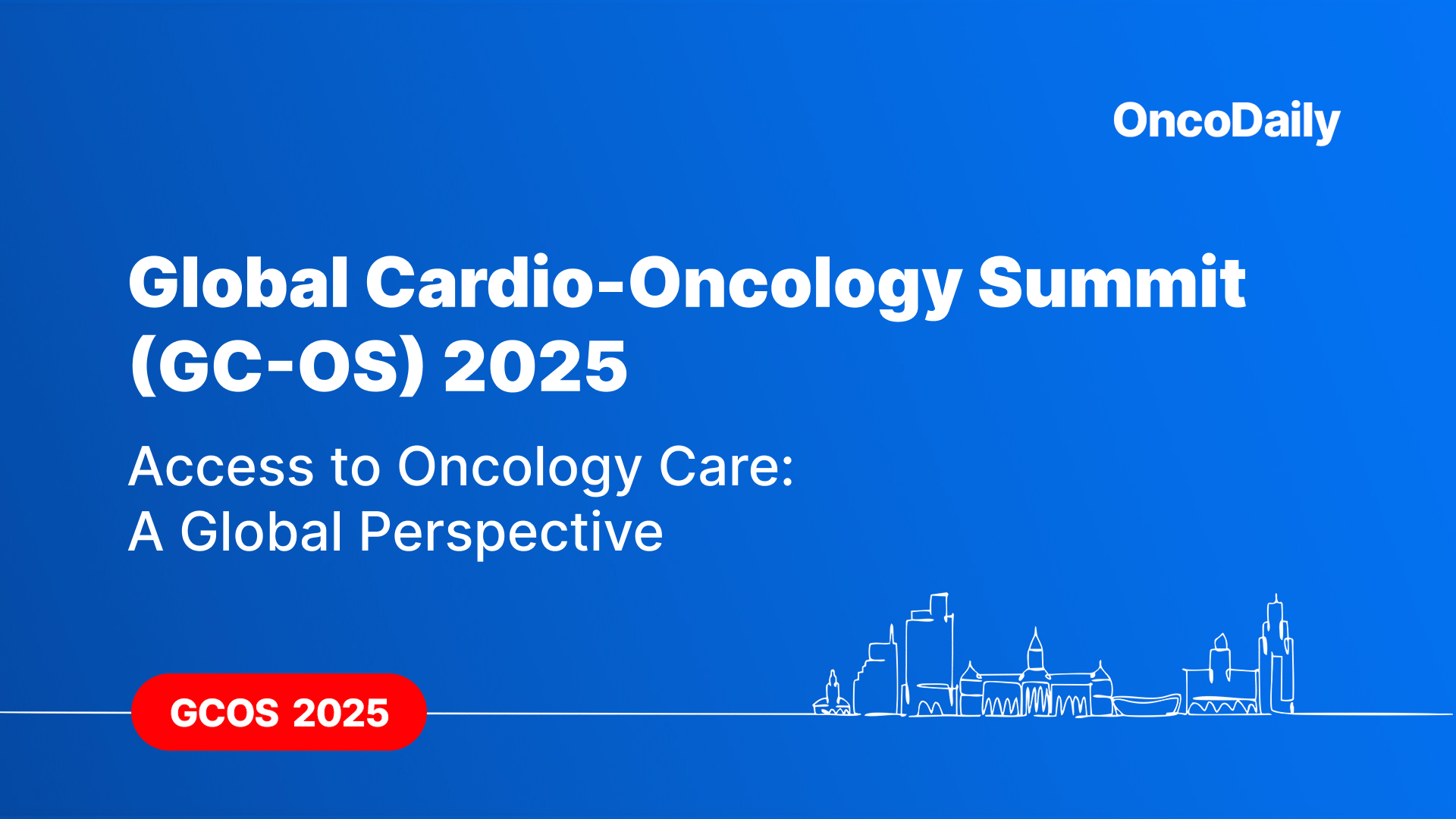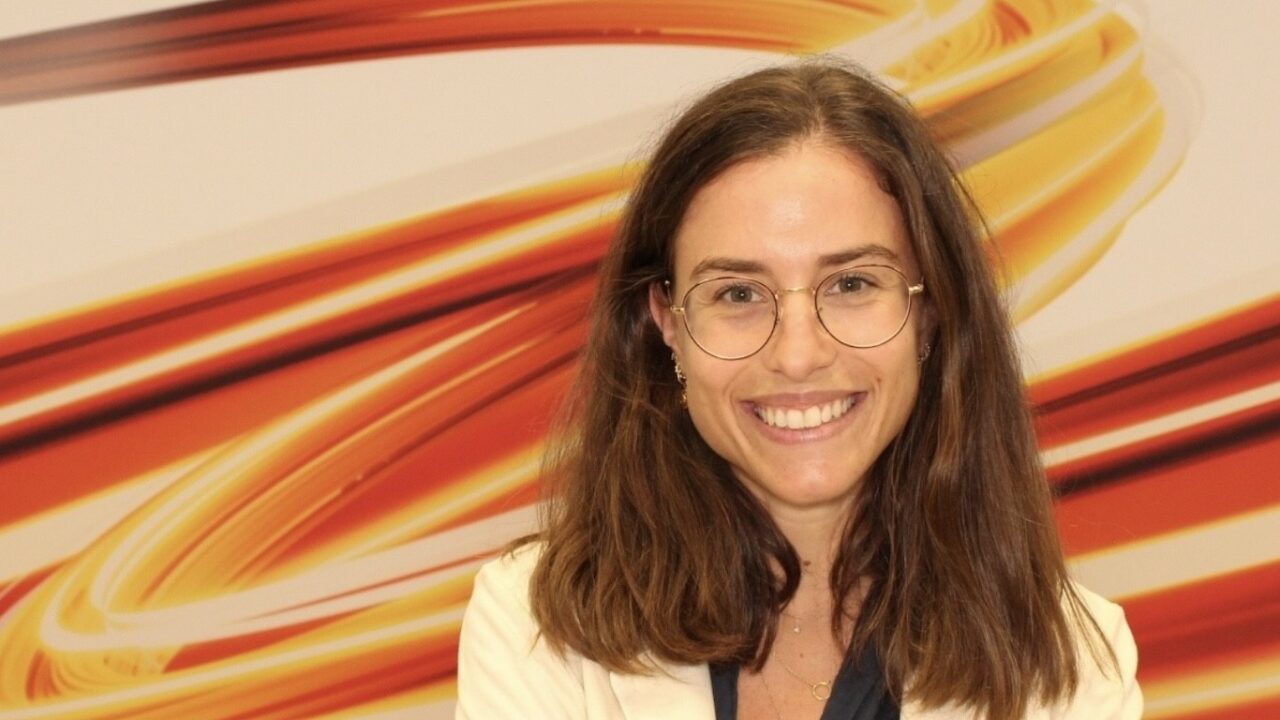The Global Cardio-Oncology Summit (GCOS2025), hosted by the Cardio Oncology Society of Southern Africa (COSOSA), is underway from October 30 to November 1, 2025, in Cape Town, South Africa. This premier event brings together leading experts and practitioners at the intersection of cardiology and oncology to explore the latest advances, research, and clinical practices aimed at improving cardiovascular care for cancer patients worldwide.
Alexandra Pons Riverola, Clinical fellow in Cardio-Oncology in Royal Brompton and Harefield hospitals, shared insights from GCOS2025 on LinkedIn:
“Brilliant lecture by Dr Alexander Lyon from Royal Brompton and Harefield hospitals on the future of Cardio-Oncology research priorities.
- Cardio-Oncology is becoming increasingly complex, with a growing number of cancer therapies that may bring new cardiovascular challenges.
- There are still many unmet needs in Cardio-Oncology, underscoring the need for continued research.
- AI could be a game changer in understanding risk, predicting toxicity and improving patient care.”
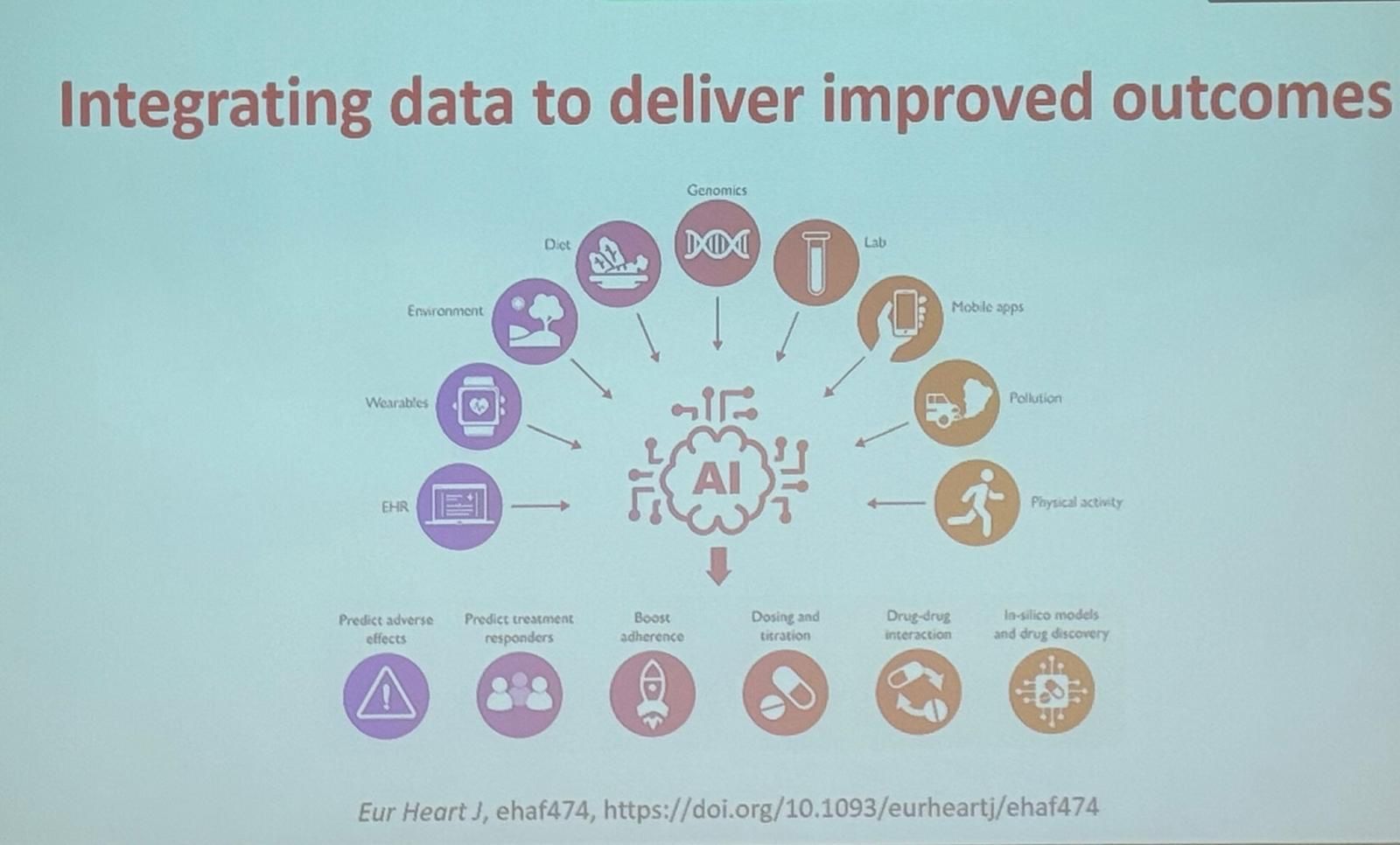
“Session 1: Cardio-Oncology in Africa.
The first session at GCOS2025 introduced delegates to some of the important basic science work being done in Africa, and the potential clinical impact this could have.
- The increased inflammation and thrombotic risk in cancer drives many of the cardiac complications we manage as cardio-oncology clinicians. Significant basic science work has been done to elucidate the mechanisms responsible which will lay the foundation for development of targeted therapeutics.
- Targeting HDL particles may be considered as a therapeutic target/ early biomarker in doxorubicin-induced cardiotoxicity.
- Traditional African plants may have a benefit in cardio-oncology. Research in the field is very active, however human clinical trials are needed.”
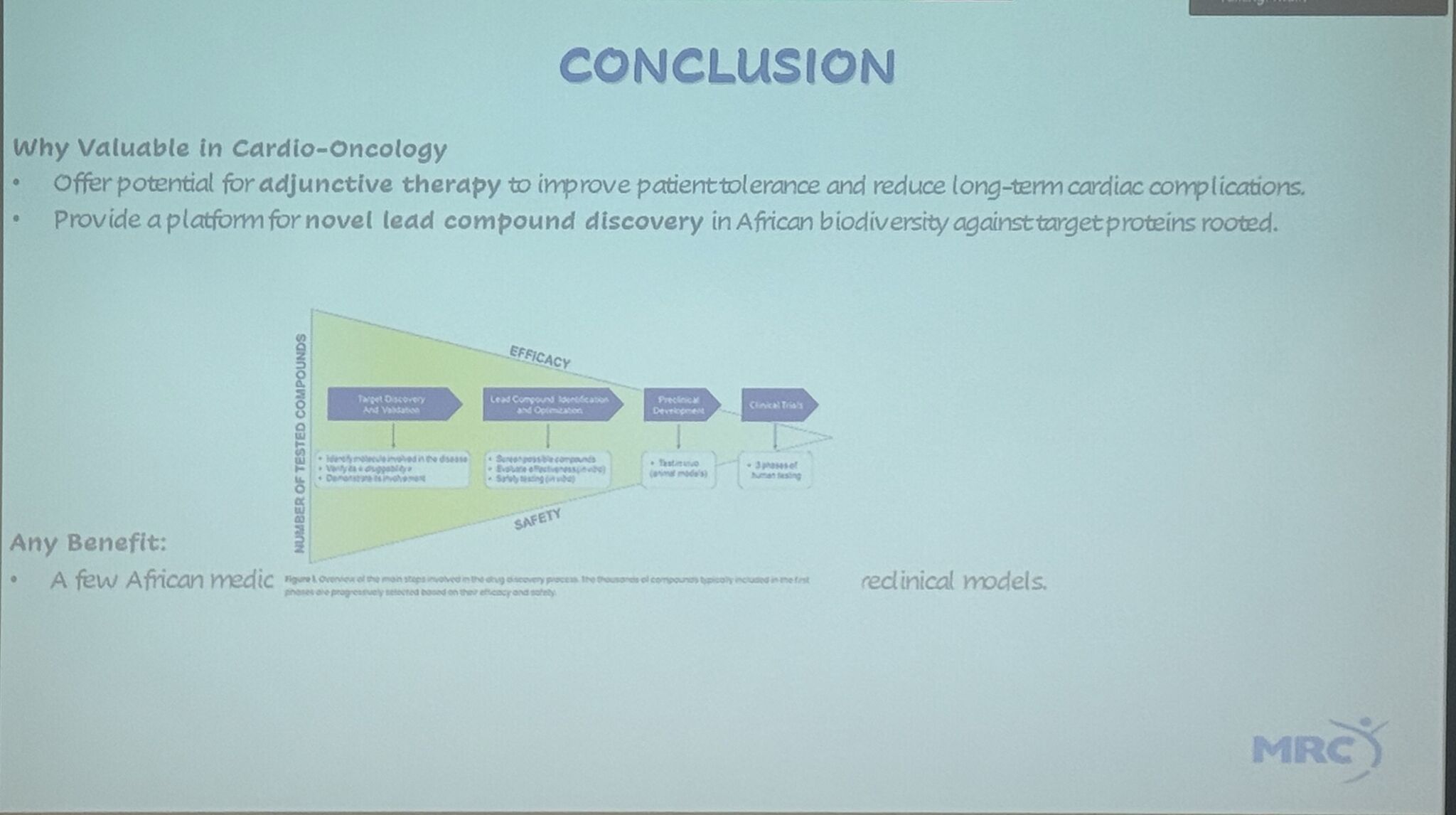
“Session 2: Novel insights in Cardio-Oncology.
- Nesprin-2 and chromatin are emerging as key players in inhibiting cancer cell proliferation in response to mechanical stimulation in the heart.
- Ferroptosis has a critical involvement both in cancer biology and cardiovascular pathology, and is a promising focus for future cardio-oncology research.
- The endothelium plays an active role in cancer transmigration.”
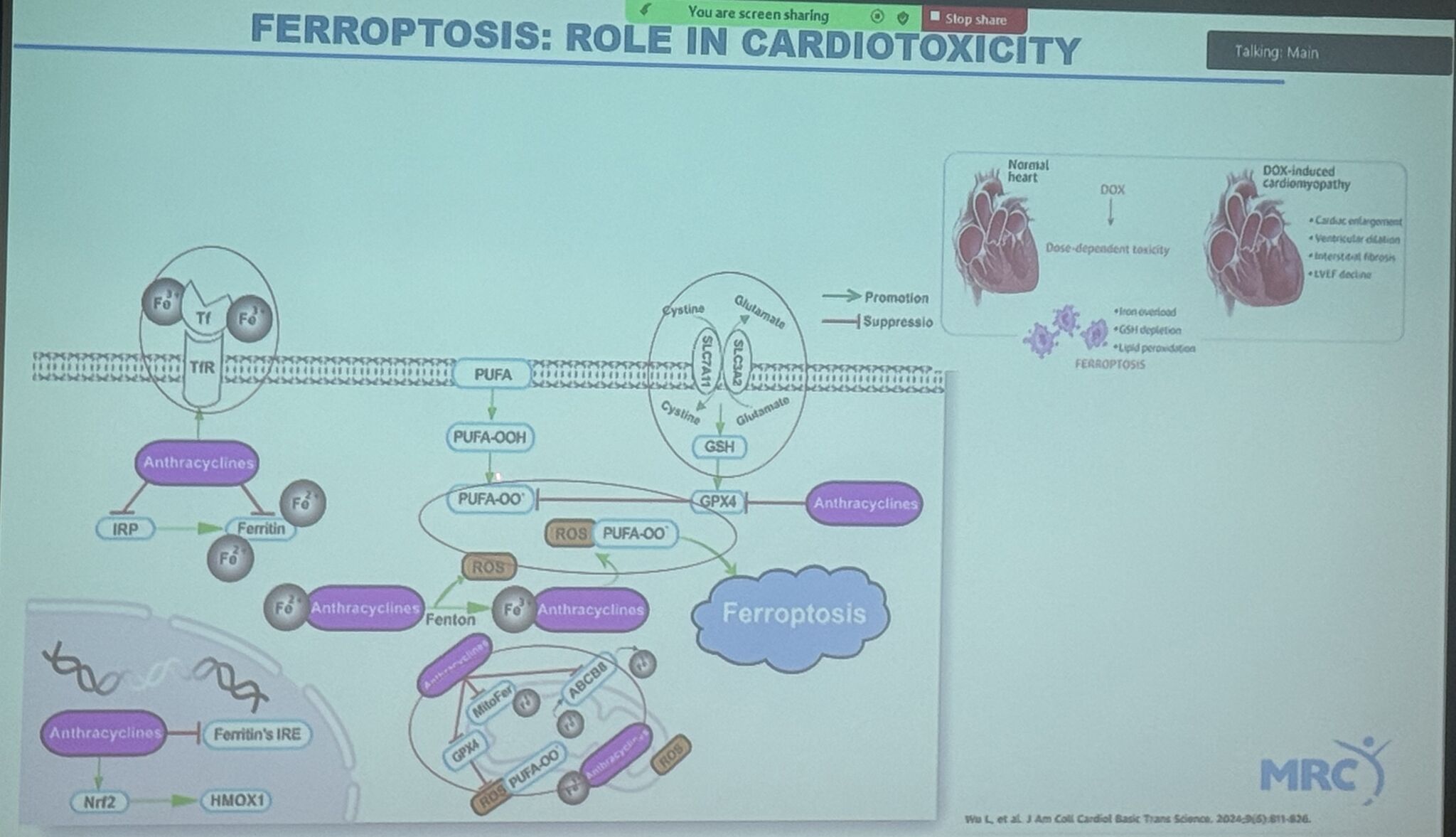
“Session 3: Anthracycline-induced cardiotoxicity.
The third session at GCOS25 focused on research exploring molecular and metabolic mechanisms underlying Anthracycline-induced cardiotoxity.
- The early phase of Doxorubicin-induced cardiotoxicity exhibits a hypermetabolic state fueled by glucose that ultimately leads to irreversible mitochondrial dysfunction. SGLT2 inhibitors can attenuate the hypermetabolic state.
- Patients with peripartum cardiomyopathy have an increased risk of cancer compared to age-matched women without PPCM.
- Juvenile doxorubicin treatment promotes mortality and heart failure during pregnancy and postpartum on mice.
- Genetic variants associated with genetic cardiomyopathy are associated with increased risk for Doxorubicin-induced Cardiotoxicity.
- Hexokinases play a dual role in heart failure and cardiotoxicity. In HFpEF there is dislocation of hexokinase-1 and decreased angiogenesis. Deletion on hexokinase-3 protects against injury by promoting the anti-inflammatory M2 polarisation.
- EPAC 1 inhibition is a new and valuable therapeutic strategy to limit Doxorubicine-induced cardiomyopathy without interfering with its antitumoral activity.”
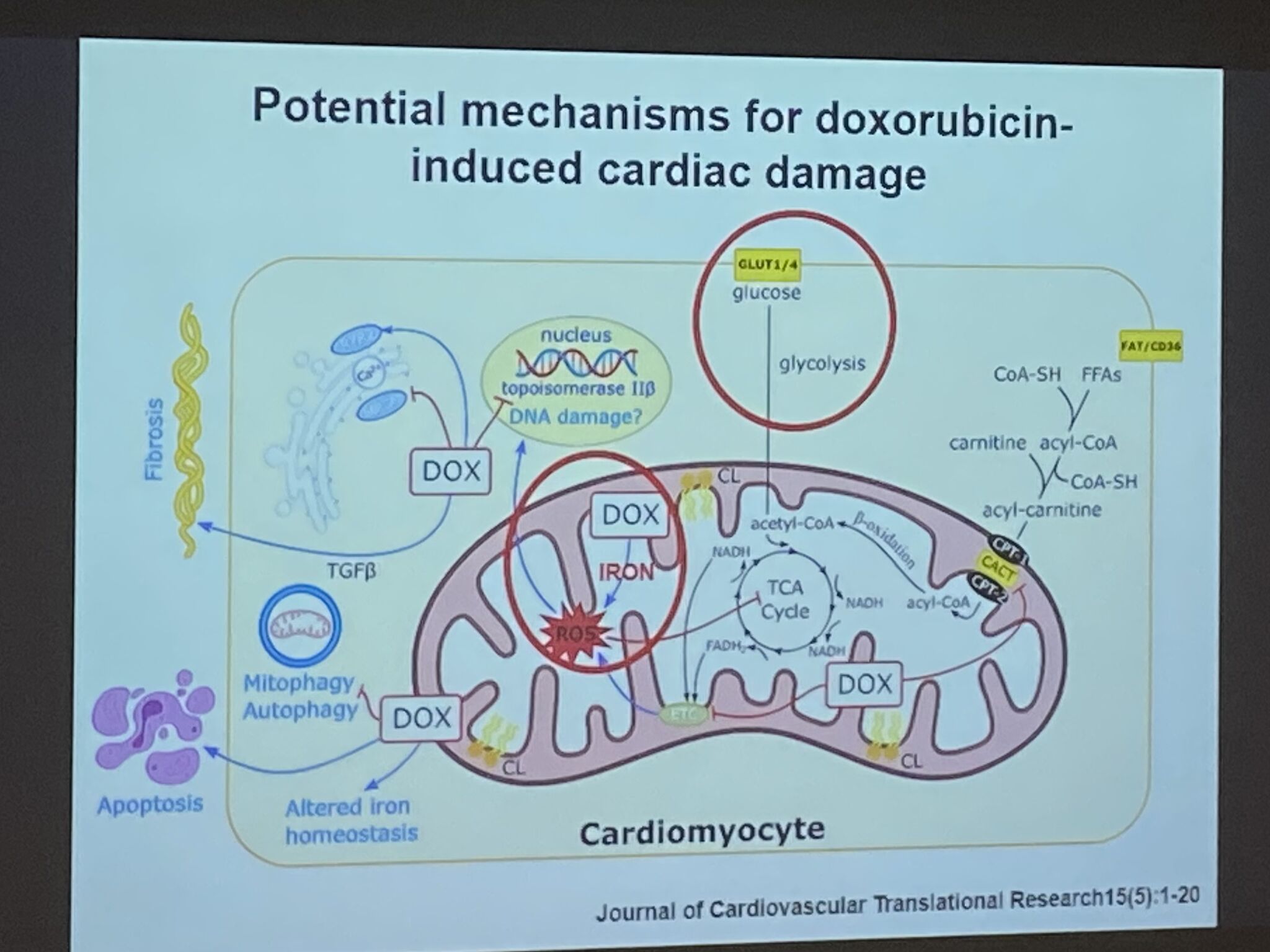
“GCOS25 Day 2 Session 1: Acute Cardiovascular Emergencies in Cancer Patients. Where do they Present and How are they Managed?
- Permissive cardiotoxicity should always be considered when managing cancer patients. Different trials have shown >90% of the patients are able to complete their treatment despite cardiotoxicity.
- Many cardiac emergencies in cancer patients can be made clinically for instance tamponade and SVC obstruction.
- Acute Coronary Syndromes in cancer patients can be challenging and a multimodality decision is needed to choose the right treatment. Cancer patients should be considered for invasive and guideline recommended ACS treatment. Short DAPT, 3rd generation stents and radial vascular access are recommended to reduce the bleeding risk.
- GPs have a key role in the care of cancer patients.”
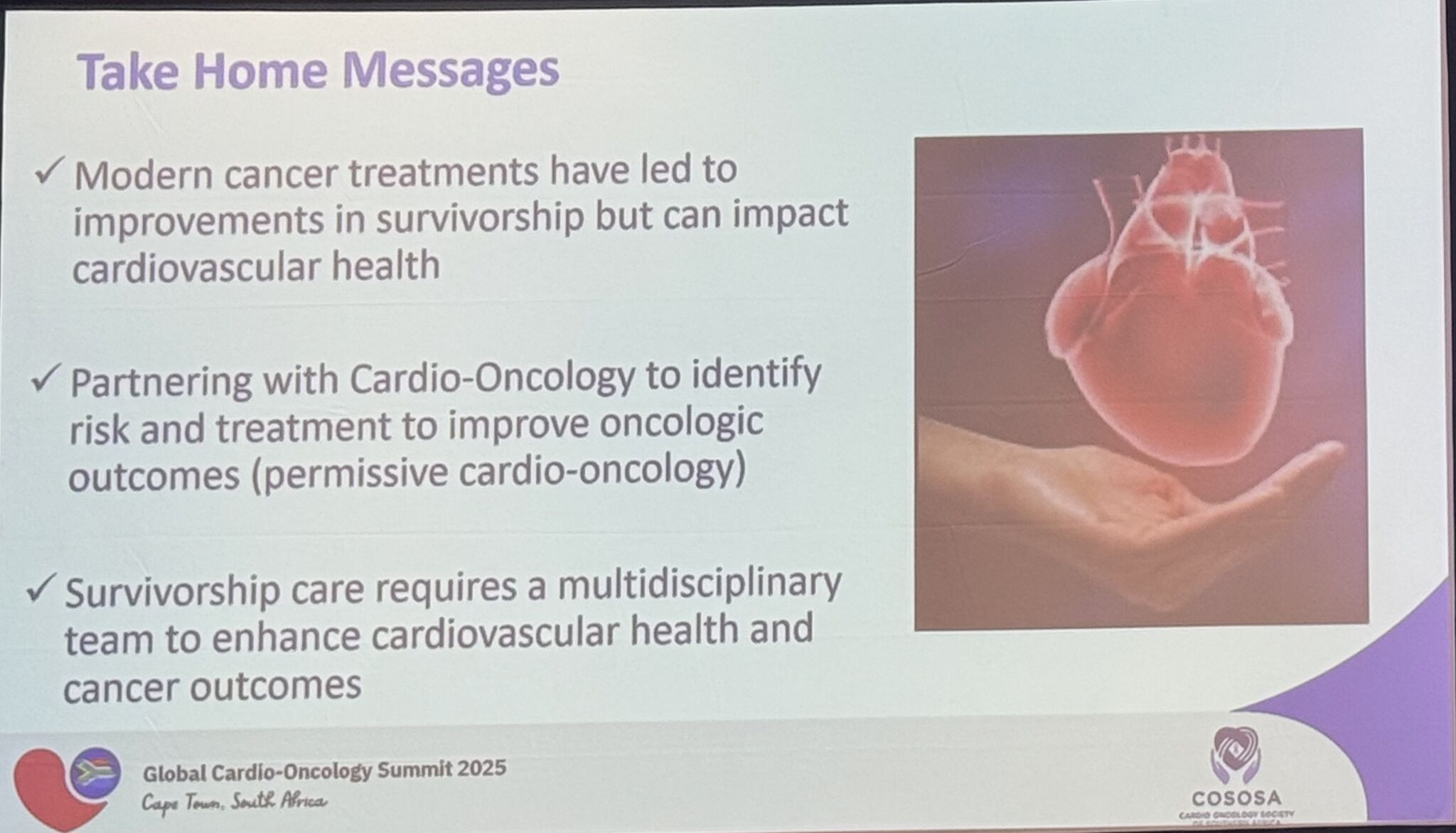
You Can Also Read: Global Cardio-Oncology Summit (GC-OS) 2025: Access to Oncology Care. A Global Perspective
